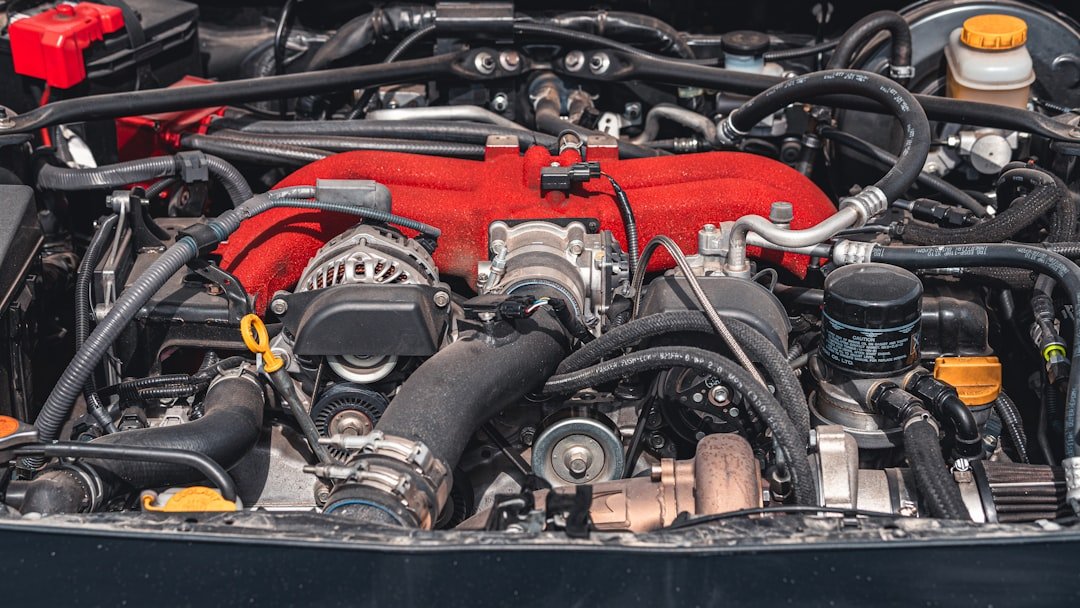Signs of a Failing Starter: How to Tell

Starting a car engine is one of the most frequent issues that drivers face. There are numerous potential causes for this, including a malfunctioning starter motor, a dead battery, or an issue with the fuel system. It’s annoying and worrisome when you turn the ignition key and nothing happens. In order to avoid becoming stranded, it’s critical to troubleshoot any issues with your car’s starting system as soon as possible. An additional cause of trouble starting the engine can be a fuel system issue.
Engine starting may be impeded if the fuel pump isn’t working properly or if there’s an obstruction in the fuel line. A dirty fuel filter may occasionally be the source of starting problems as well. It may also be challenging for the engine to start if the ignition system is malfunctioning or the spark plugs are worn out.
To guarantee smooth engine starts, it’s critical to have these parts inspected and changed on a regular basis. Any unusual noises emanating from your car should be taken seriously and should be fixed right away to avoid more damage. A common noise that drivers might hear when braking is a grinding or squealing sound.
This may be a sign that new brake pads are required because the old ones are worn out. If you ignore this problem, the brake rotors may get damaged and require expensive repair. An engine knocking or pinging sound is another odd noise that drivers might hear. This could indicate poor fuel quality, carbon accumulation in the combustion chamber, or an issue with the timing of the ignition.
| Signs of a Failing Starter | How to Tell |
|---|---|
| Engine Cranks Slowly | If you notice the engine cranking slowly when you try to start the car, it could be a sign of a failing starter. |
| Clicking Noise | A clicking noise when you turn the key in the ignition could indicate a problem with the starter. |
| Intermittent Starting | If your car starts sometimes but not others, it could be due to a failing starter. |
| Smoke or Burning Smell | If you notice smoke or a burning smell when trying to start the car, it could be a sign of a failing starter. |
To avoid possible engine damage, it’s critical to have this problem diagnosed by a qualified mechanic. A clicking or tapping sound coming from the engine may also be a sign of low oil pressure or worn-out engine parts. The occurrence of these problems can be avoided with routine maintenance and oil changes. Drivers may find it annoying and even dangerous when their vehicle stalls frequently.
Numerous problems, including a malfunctioning sensor, a clogged fuel filter, or an defective ignition system, may be the cause of this. It’s crucial to have your car inspected by a qualified mechanic to find the root of the problem if it stops frequently. A transmission issue may also be the cause of your frequent stalling. The transmission may slip or fail, resulting in stalling, if the transmission fluid is low or contaminated. The engine may also stall when idling if the idle air control valve is unclean or broken.
Your car can stay in good working order and avoid these problems with routine maintenance and inspections. It’s critical to take quick action to address any smoke or burning smells coming from your car in order to stop further damage or fire. An oil leak is a common source of smoke or a burning smell. Smoke and a burning smell may come from oil leaking onto hot engine parts.
It’s critical to get oil leaks fixed right away to save the engine from being damaged. An issue with the cooling system could be another cause of smoke or a burning odor. There may be burning smell and smoke coming from the radiator or hoses if coolant is leaking onto hot engine parts.
Smoke and a burning smell may also come from the brakes overheating because of worn-out brake pads or a broken caliper. To stop additional harm from occurring to your car, it’s critical that these problems are identified and fixed right away. Drivers can be made aware of possible problems with their cars by using dashboard warning lights. These warning lights present possible safety risks as well as expensive repairs if ignored. The check engine light is one ubiquitous dashboard warning indicator that drivers may see.
A malfunctioning oxygen sensor, a loose gas cap, or a catalytic converter problem are just a few of the problems that this light may be indicating. It’s critical to have this problem identified by a qualified mechanic in order to ascertain its root cause. The ABS light, which denotes an issue with the anti-lock braking system, is another dashboard warning light that drivers may see. One or more of the following could be the cause: low brake fluid, a broken wheel speed sensor, or an ABS module. Ignoring this warning light may result in possible brake failure and other safety risks.
To guarantee safe driving, it’s critical to have this problem identified and fixed right away. It can be frustrating and challenging to diagnose electrical problems in your car. Drivers frequently experience dead batteries as an electrical problem. A failing battery could be the cause of your car’s difficulty starting or dimming of the lights. If the battery needs to be changed, it’s crucial to get it tested and out of a jam.
A malfunctioning alternator is another electrical problem that drivers might face. Lamp dimming, electrical system problems, and trouble starting the engine can all be signs that the alternator is failing. To avoid possible damage to the electrical system, it’s critical to have the alternator inspected and replaced as needed.
When the key is turned in the ignition, the starter motor turns on the engine. You might become stranded if the starter motor gives out & stops the engine from starting. When you turn the key in the ignition and the engine does not start, you may hear a clicking sound, which is a common indication that the starter motor has failed. Also, if the starter motor emits smoke or a burning smell, this could be a sign of internal damage or an electrical problem. Squeaking or grinding sounds made when starting the engine are another indication that the starter motor is failing.
This can mean that there is damage or wear on the starter motor gears. To avoid getting stuck & possibly damaging other engine parts, it’s critical to have starter motor problems identified & fixed right away. Ultimately, drivers may find car issues to be upsetting and worrying.
It’s critical to take quick action to resolve these problems in order to stop additional harm and possible safety risks. You can keep your car in good working order & save money on repairs by being proactive with routine maintenance and inspections. To guarantee safe driving and peace of mind while driving, it’s crucial to have any of these common auto issues diagnosed & fixed by a qualified mechanic.
If you’re wondering how to tell if your starter is going bad, you may also be interested in learning about the common signs of a failing starter motor. Check out this insightful article on howtostart.digital for expert tips and advice on diagnosing and troubleshooting starter issues. Understanding the warning signs can help you address potential problems early and avoid costly repairs down the road.




